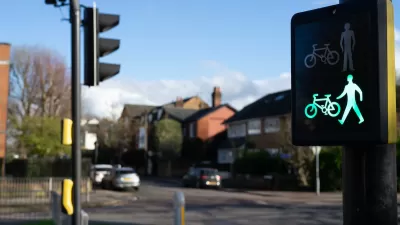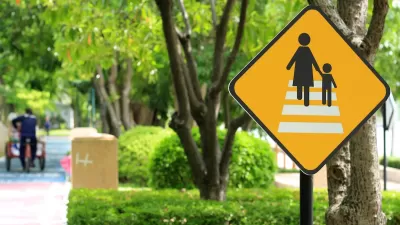Another reason to hate the Monday after daylight-saving time goes into effect: a spike in the number of car crashes and traffic fatalities.

Brian Resnick writes that the only thing worse than losing an hour of weekend when the clock switches to daylight-saving time are the car crashes that follow on Monday.
The problem is the loss of sleep. When the clock springs forward, “[i]t's like giving the entire nation one time zone's worth of jet lag,” writes Resnick. But that’s only the beginning of story. The rest of the story requires the research of a team from Johns Hopkins and Stanford universities, which published a study in 1999 finding the following distressing findings regarding traffic safety on this most somnambulant of days:
Analyzing 21 years of fatal car crash data from the US National Highway Transportation Safety Administration, they found a very small, but significant, increase of road deaths on the Monday after the clock shift in the spring. The number of deadly accidents jumped to an average of 83.5 on the "spring forward" Monday compared with an average of 78.2 on a typical Monday.
Another study in Canada a few years earlier found a similar increase, and the same results were found in Great Britain the decade previous. On the other side of the calendar, a study from 2007 found that drivers are more likely to strike pedestrians at the end of daylight-saving time, when it gets darker earlier.
In answer to the question of whether we should all stay home from work and avoid getting behind the wheel on the Monday after daylight-saving time starts, according to Resnick, “[the] takeaway is that even small decreases in our sleep times can stress our bodies,” and we humans have to be aware of our fragility.
FULL STORY: Another reason to hate daylight saving time: car crashes

Planetizen Federal Action Tracker
A weekly monitor of how Trump’s orders and actions are impacting planners and planning in America.

Restaurant Patios Were a Pandemic Win — Why Were They so Hard to Keep?
Social distancing requirements and changes in travel patterns prompted cities to pilot new uses for street and sidewalk space. Then it got complicated.

Maui's Vacation Rental Debate Turns Ugly
Verbal attacks, misinformation campaigns and fistfights plague a high-stakes debate to convert thousands of vacation rentals into long-term housing.

In California Battle of Housing vs. Environment, Housing Just Won
A new state law significantly limits the power of CEQA, an environmental review law that served as a powerful tool for blocking new development.

Boulder Eliminates Parking Minimums Citywide
Officials estimate the cost of building a single underground parking space at up to $100,000.

Orange County, Florida Adopts Largest US “Sprawl Repair” Code
The ‘Orange Code’ seeks to rectify decades of sprawl-inducing, car-oriented development.
Urban Design for Planners 1: Software Tools
This six-course series explores essential urban design concepts using open source software and equips planners with the tools they need to participate fully in the urban design process.
Planning for Universal Design
Learn the tools for implementing Universal Design in planning regulations.
Heyer Gruel & Associates PA
JM Goldson LLC
Custer County Colorado
City of Camden Redevelopment Agency
City of Astoria
Transportation Research & Education Center (TREC) at Portland State University
Jefferson Parish Government
Camden Redevelopment Agency
City of Claremont





























